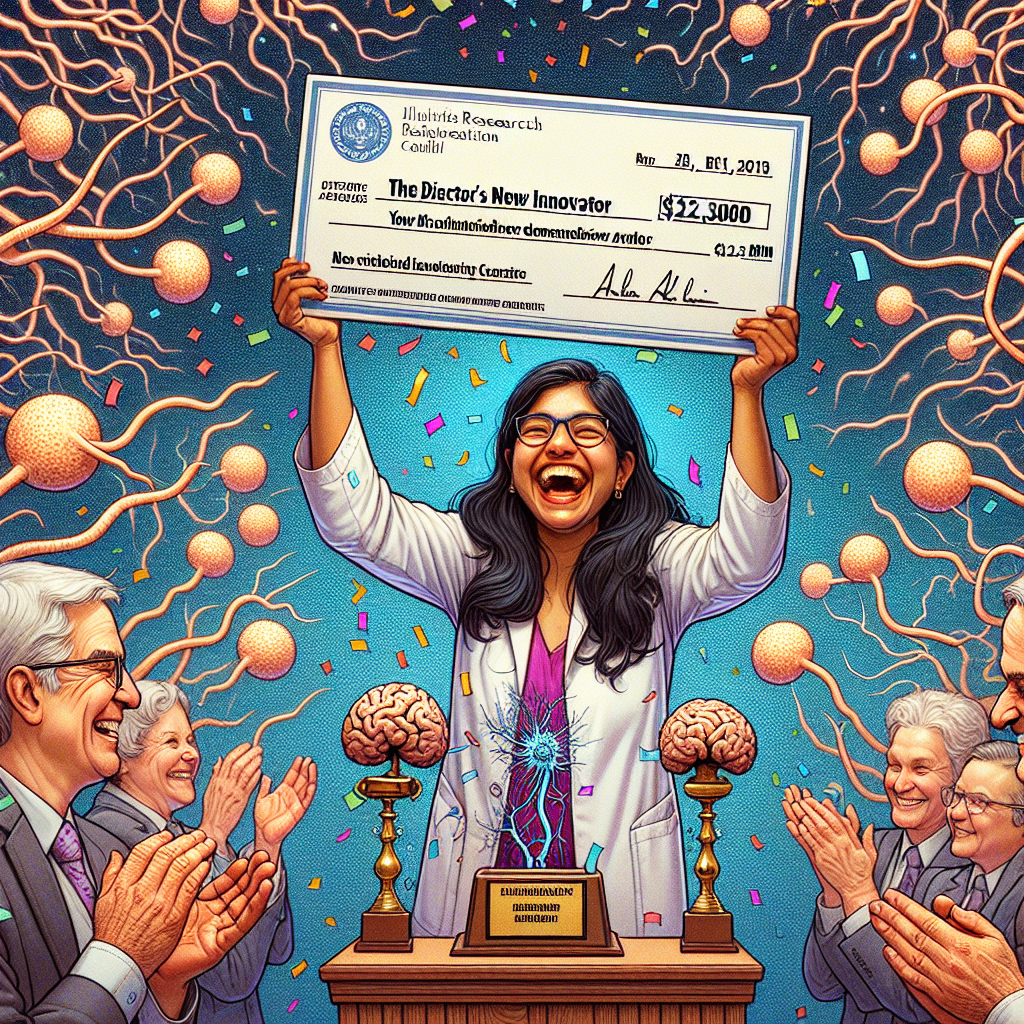In a groundbreaking development for neuroscience research, a talented scientist at the Medical College of Georgia (MCG) has been awarded a substantial $2.3 million grant from the National Institutes of Health (NIH). This prestigious funding, part of the NIH Director’s New Innovator Award, recognizes and supports exceptionally innovative research projects. The MCG neuroscientist stands out as one of just 40 researchers nationwide to receive this esteemed award, highlighting the cutting-edge nature and immense potential of their work.
The Significance of the NIH Director’s New Innovator Award
The NIH Director’s New Innovator Award is a highly competitive and coveted funding opportunity in the scientific community. It is designed to support early-stage investigators who propose high-risk, high-reward research projects that have the potential to make significant impacts in their respective fields. This award is part of the NIH’s High-Risk, High-Reward Research program, which aims to accelerate scientific discovery by supporting creative, outside-the-box thinkers.
Key features of the NIH Director’s New Innovator Award include:
1. Substantial funding: The award provides $2.3 million in direct costs over five years.
2. Flexibility: Recipients have considerable freedom in how they allocate the funds to pursue their research goals.
3. Prestige: Being selected for this award is a significant recognition of a researcher’s innovative thinking and potential to make groundbreaking discoveries.
The MCG Neuroscientist’s Achievement
The fact that the MCG neuroscientist was chosen as one of only 40 recipients nationwide underscores the exceptional nature of their research proposal. This achievement not only brings substantial funding to their work but also elevates the profile of the Medical College of Georgia and Augusta University as institutions at the forefront of neuroscience research.
Potential Impact on Neuroscience Research
While specific details of the neuroscientist’s research project are not provided, the nature of the NIH Director’s New Innovator Award suggests that their work has the potential to:
1. Address critical gaps in our understanding of the brain and nervous system
2. Develop novel approaches to studying neurological disorders
3. Pioneer new technologies or methodologies in neuroscience research
4. Potentially lead to breakthrough treatments for neurological conditions
The Importance of Funding in Scientific Research
Securing funding is a crucial aspect of scientific research, particularly in fields like neuroscience that often require sophisticated equipment and resources. The $2.3 million grant awarded to the MCG neuroscientist will likely have a transformative impact on their ability to conduct research and push the boundaries of our understanding of the brain.
Benefits of substantial research funding include:
1. Access to cutting-edge equipment and technologies
2. Ability to hire and support talented research staff
3. Resources to conduct long-term, complex studies
4. Opportunities for collaboration with other institutions and researchers
5. Increased potential for publishing groundbreaking findings in high-impact journals
The Role of Augusta University and MCG in Advancing Neuroscience
This significant award reflects positively on Augusta University and the Medical College of Georgia, highlighting their commitment to fostering innovative research and supporting talented scientists. It positions these institutions as key players in the advancement of neuroscience and medical research.
Potential benefits for Augusta University and MCG include:
1. Enhanced reputation in the scientific community
2. Increased ability to attract top-tier faculty and students
3. Potential for additional funding and research opportunities
4. Strengthened collaborations with other research institutions
5. Positive impact on the local community through scientific advancements and economic benefits
The Future of Neuroscience Research
The NIH Director’s New Innovator Award is designed to support research that has the potential to significantly advance our understanding of the brain and nervous system. As such, the funded project at MCG could contribute to shaping the future direction of neuroscience research.
Potential areas of impact include:
1. Unraveling the complexities of brain function and structure
2. Developing new treatments for neurological disorders
3. Advancing our understanding of cognitive processes and behavior
4. Improving diagnostic tools for brain-related conditions
5. Pushing the boundaries of brain-computer interfaces and neural engineering
FAQ Section
Q1: What is the NIH Director’s New Innovator Award?
A1: The NIH Director’s New Innovator Award is a prestigious funding opportunity that supports early-stage investigators proposing highly innovative research projects with the potential to make significant impacts in their fields.
Q2: How much funding does the award provide?
A2: The award provides $2.3 million in direct costs over a five-year period.
Q3: How many scientists received this award?
A3: Only 40 scientists across the country were selected to receive this award in the current cycle.
Q4: What does this award mean for the Medical College of Georgia?
A4: This award brings significant funding and prestige to MCG, positioning it as a leader in innovative neuroscience research and enhancing its ability to attract top talent and future funding opportunities.
Q5: How might this research impact the field of neuroscience?
A5: While specific details of the research are not provided, projects funded by this award are expected to have the potential to make groundbreaking discoveries that could significantly advance our understanding of the brain and nervous system, potentially leading to new treatments for neurological disorders.
Conclusion
The awarding of $2.3 million in NIH funding to a neuroscientist at the Medical College of Georgia represents a significant milestone in the institution’s research endeavors. As one of only 40 recipients nationwide of the prestigious NIH Director’s New Innovator Award, this achievement underscores the innovative nature and high potential of the research being conducted at MCG. This substantial funding is likely to accelerate scientific discovery in the field of neuroscience, potentially leading to breakthroughs that could transform our understanding of the brain and nervous system. As the project unfolds over the next five years, the scientific community will be watching with keen interest to see what groundbreaking discoveries emerge from this well-supported and highly promising research initiative.
Source: Jagwire at Augusta University
